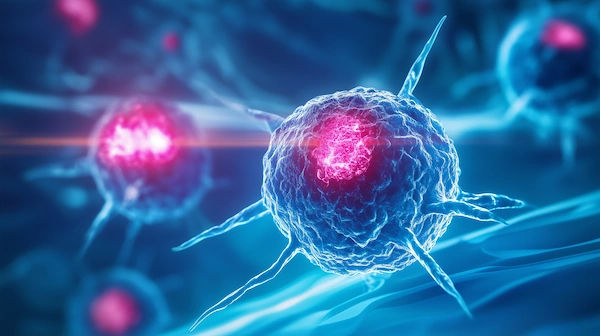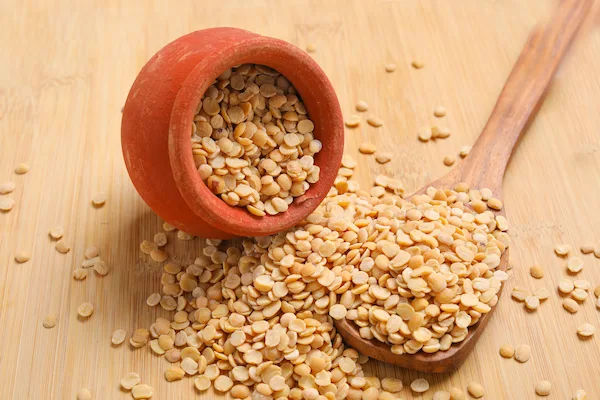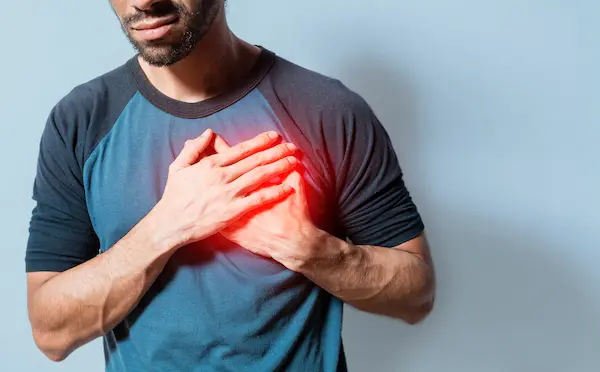Urology Guide: Conditions, Tests, and Care Options
Know about the urology, what it is, urologist versus neurologists, types, signs, symptoms, risks, conditions and treatment options. Learn about prevention, self care and more.

Written by Dr. Md Yusuf Shareef
Reviewed by Dr. D Bhanu Prakash MBBS, AFIH, Advanced certificate in critical care medicine, Fellowship in critical care medicine
Last updated on 13th Jan, 2026
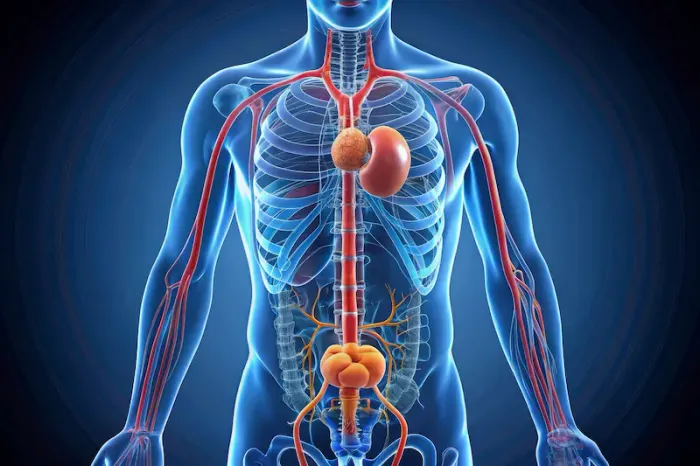
Introduction
Urology is the medical speciality focused on the urinary tract and the male reproductive system. If you’ve ever had a kidney stone, a urinary tract infection, or questions about prostate health, you’ve already brushed up against urology without realising it. Because the urinary system influences how your body filters waste, balances fluids, and maintains sexual and reproductive function, urology touches every age group from children with bedwetting to adults managing incontinence or prostate concerns.
We’ll cover prevention strategies, what to expect at your first appointment, how tele-urology fits in, and how to choose the right specialist for your needs. Throughout, we’ll highlight evidence-based guidance from leading organisations and offer practical tips you can use today. Whether you’re seeking relief from symptoms or planning, consider this your comprehensive, easy-to-understand roadmap to urology.
Consult a Top Urologist for Personalised Advice
What Is Urology?
Urology is a surgical and medical speciality caring for the kidneys, ureters, bladder, urethra, and in men, the prostate, testicles, and penis. Because the urinary tract filters blood, removes waste, and regulates fluids and electrolytes, urologic problems can affect overall health—causing pain, infections, blood in urine, or changes in urination patterns. Many urologists also manage male sexual health issues like erectile dysfunction and infertility, while collaborating with gynaecologists and pelvic floor therapists to support women’s urogynecologic needs.
Organs and Systems Covered
1. Kidneys: filter blood, produce urine.
2. Ureters: carry urine to the bladder.
3. Bladder: stores urine.
4. Urethra: releases urine; in men, also carries semen.
5. Male reproductive organs: prostate, testicles, epididymis, penis.
Urologists vs. Nephrologists: What’s the Difference?
Nephrology focuses on medical kidney disorders (e.g., chronic kidney disease, hypertension-related kidney damage), while urology addresses surgical and structural issues (e.g., kidney stones, obstructions, cancers). Many patients benefit from both specialities depending on the problem.
Subspecialties in Urology (Endourology, Oncology, Female Pelvic Medicine, Pediatric, Reconstruction)
1. Endourology: Scope- and laser-based procedures for stones and strictures.
2. Urologic oncology: Cancers of the kidney, bladder, prostate, and testis.
3. Female pelvic medicine: Incontinence, prolapse, pelvic pain.
4. Pediatric urology: Congenital anomalies, UTIs, undescended testis.
5. Reconstruction and neurourology: Restoring urinary function after injury or nerve conditions.
When to See a Urologist?
Symptoms that persist or disrupt daily life warrant urologic evaluation. Early assessment can prevent complications and preserve kidney function.
Common Symptoms That Need Expert Evaluation
1. Painful urination, frequent urination, or urgency (possible UTI or overactive bladder).
2. Blood in urine (hematuria), even once, should be checked to rule out stones, infections, or rarely, cancer.
3. Flank pain (kidney stone), especially with nausea or vomiting.
4. Trouble starting urination, weak stream, or nighttime urination in men (possible BPH).
5. Erectile dysfunction, penile curvature, or testicular pain/swelling.
6. Incontinence in women or men, including stress leakage with cough/laugh.
Emergency Red Flags vs. Routine Concerns
1. Seek urgent care for: fever with urinary symptoms, severe flank pain with vomiting, inability to urinate, testicular torsion-like pain (sudden, severe testicular pain), or visible blood in urine with clots.
2. office visit: recurrent UTIs, persistent urgency/frequency, mild leakage, erectile or ejaculatory concerns.
Self-Checks and Timing for Medical Attention
Keep a symptom diary (frequency, triggers, fluid intake). If symptoms persist beyond two weeks, consult a doctor online with Apollo24|7 for further evaluation or to arrange an in-person visit when appropriate.
Common Urologic Conditions Across the Lifespan
The conditions include:
Men’s Health (BPH, prostate cancer, erectile dysfunction)
1. BPH (benign prostatic hyperplasia): Enlargement of the prostate can cause urinary hesitancy, weak flow, and nighttime urination. BPH affects about half of men between 51–60 and up to 90% over age 80. Treatments range from lifestyle changes and medications to minimally invasive procedures.
2. Prostate cancer: One of the most common cancers in men. Many cases are slow-growing; early detection relies on a shared decision about PSA screening and rectal exam, considering age and risk factors.
3. Erectile dysfunction: Common with age, diabetes, and cardiovascular disease. ED can be an early sign of vascular issues, so heart-health evaluation is important.
Women’s Health (UTIs, overactive bladder, stress incontinence)
1. UTIs: Up to 50–60% of women will have at least one UTI [1]. Recurrent UTIs may need culture-guided treatment and preventive strategies.
2. Overactive bladder (OAB): Urgency and frequency with or without urge incontinence. Bladder training and pelvic floor therapy are first-line.
3. Stress incontinence: Leakage with cough/sneeze/laugh; often improves with pelvic floor exercises and, if needed, minimally invasive procedures.
Pediatric Urology Basics (bedwetting, UTIs, congenital issues)
1. Bedwetting (nocturnal enuresis) is common and often resolves with time; treat contributing constipation, consider bladder training.
2. Recurrent UTIs may signal vesicoureteral reflux or bowel/bladder dysfunction.
3. Congenital anomalies (e.g., undescended testis) require timely evaluation to protect fertility and function.
Kidney & Urinary Tract Disorders (stones, hematuria)
1. Stones: Risk factors include dehydration, high sodium, and high animal-protein intake. Recurrence is common; prevention is key [1,5].
2. Hematuria: Microscopic or visible blood needs evaluation with urinalysis, imaging, and sometimes cystoscopy.
Diagnostics and Tests in Urology
The diagnosis and tests include:
Labs and Imaging (urinalysis, urine culture, ultrasound, CT)
1. Urinalysis and urine culture: Detect infection, blood, protein, or crystals. Culture guides antibiotic choice and reduces overtreatment.
2. Ultrasound: No radiation; useful for kidneys, bladder (post-void residual), and testicles.
3. CT scan (often low-dose CT for stones): Best sensitivity for stones and complex anatomy.
Endoscopic and Functional Tests (cystoscopy, urodynamics)
1. Cystoscopy: A thin camera looks inside the urethra and bladder to evaluate hematuria, tumours, or strictures.
2. Urodynamics: Measures bladder pressures and flow to diagnose incontinence, retention, and neurologic urinary disorders.
Get Your Symptoms Assessed
Prostate Evaluation (PSA, DRE, MRI fusion biopsy)
1. PSA blood test and digital rectal exam (DRE) help assess prostate risks; decisions are individualised.
2. Multiparametric MRI and MRI-targeted biopsies improve detection of clinically significant prostate cancer.
How to Prepare for Common Tests
Hydrate unless told otherwise; bring medication lists; avoid blood thinners if instructed before certain procedures. Apollo24|7 offers convenient home collection for tests like urinalysis, urine culture, PSA, and kidney function just as they do for vitamin D or HbA1c.
Treatments in Urology: From Lifestyle to Surgery
The treatments in urology include:
Medications and Non-Procedural Care
1. BPH: Alpha blockers (tamsulosin), 5-alpha-reductase inhibitors (finasteride), or combination therapy reduce symptoms and prostate size.
2. OAB/incontinence: Bladder training, pelvic floor physical therapy, antimuscarinics or beta-3 agonists; topical estrogen may help postmenopausal women.
3. UTIs: Culture-guided antibiotics; prevention includes hydration, timed voiding, and, in select cases, prophylaxis. Antibiotic stewardship prevents resistance.
Minimally Invasive Procedures (ESWL, ureteroscopy, laser)
1. Stones: Extracorporeal shock wave lithotripsy (ESWL) for certain stones; ureteroscopy with laser lithotripsy for many ureteral and renal stones; percutaneous nephrolithotomy (PCNL) for larger stones.
2. BPH: Minimally invasive options include UroLift, Rezūm, and prostate enucleation techniques with lasers; selected based on prostate size and symptom profile.
3. Incontinence: Urethral bulking and mid-urethral slings for stress incontinence when conservative measures fail.
Reconstructive and Oncologic Surgeries
1. Robotic and laparoscopic surgeries reduce hospital stay and recovery time in many cancers (prostatectomy, partial nephrectomy).
2. Reconstruction for strictures, trauma, or after cancer treatment restores function and quality of life.
Recovery, Risks, and Outcomes
Discuss pain control, catheter expectations, and return-to-activity timelines. Ask about centre-specific outcomes and complication rates. Unique insight: For stones, a tailored prevention plan based on a “stone risk workup” (24-hour urine, blood tests) can reduce recurrence substantially.
Prevention and Self-Care
The preventive and self care tips include:
Hydration, Diet, and Stone Prevention
1. Hydration: Aim for urine that’s pale yellow; many benefit from 2–3 litres of fluid/day unless restricted by other conditions.
2. Diet: Lower sodium, moderate animal protein, maintain dietary calcium, and limit high-oxalate foods if you form calcium oxalate stones.
3. Weight management and physical activity improve urinary symptoms and erectile function.
Pelvic Floor Training and Bladder Habits
Pelvic floor exercises (Kegels) help with stress incontinence and post-prostate surgery recovery. A pelvic floor therapist can ensure proper technique.
Bladder training (gradually lengthening intervals between voids) helps an overactive bladder.
Cancer Risk Reduction (smoking cessation, screening)
Smoking is the top risk factor for bladder cancer; quitting lowers risk significantly.
Shared decision-making for PSA screening can improve detection while minimising overdiagnosis.
Your First Urology Visit: What to Expect
Preparing a Symptom and Medication List
Bring:
1. A symptom diary (frequency, triggers, fluid intake, leakage episodes).
2. All medications and supplements.
3. Prior test results (labs, imaging) and surgeries.
Insurance, Costs, and Second Opinions
Ask about in-network labs and imaging, expected out-of-pocket costs, and when a second opinion adds value (e.g., major surgery, cancer). If your condition does not improve after trying these methods, book a physical visit to a doctor with Apollo24|7 for further evaluation.
Conclusion
Urology is about more than kidneys and bladder—it’s about protecting how your body filters waste, maintains balance, and supports sexual and reproductive health across the lifespan. If you’re dealing with symptoms like frequent urination, pain, or changes in flow, timely evaluation can prevent complications and help you feel better, faster.
The right tests at the right time, a clear sense of your goals, and a stepwise approach that starts with the least invasive options. Add prevention hydration, pelvic floor training, smart diet choices, and tobacco cessation—and you can meaningfully lower your risk of recurrent problems. Use telehealth for convenient follow-ups, but don’t ignore red flags like fever, severe pain, or blood in urine.
If symptoms persist beyond two weeks, consult a doctor online with Apollo24|7 for further evaluation—or book a physical visit if you need hands-on testing. And if lab tests are recommended, Apollo24|7 offers convenient home collection for urinalysis, urine culture, PSA, and kidney function, similar to their vitamin D or HbA1c services.
d188a910-996b-4478-b014-72a8ec54312e
Consult a Top Urologist for Personalised Advice

Dr. Gopal Achari
Neurosurgeon
20 Years • MBBS, MS (GEN SUR), MCH (NEURO SUR)
Kolkata
Apollo Multispeciality Hospitals , Kolkata, Kolkata

Dr. Anil Pradeep Jadhav
Orthopaedician
23 Years • MBBS MS (Ortho)
Nashik
Apollo Hospitals Nashik, Nashik
(25+ Patients)

Ms. Richa Sharma
Physiotherapist And Rehabilitation Specialist
12 Years • MPT,MIAP
Noida
Apollo Hospitals Sector 26, Noida
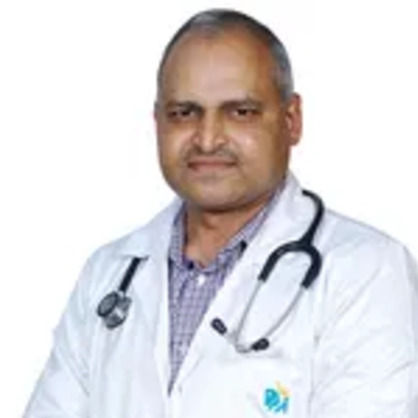
Dr. Dhanraj K
General Physician/ Internal Medicine Specialist
25 Years • MBBS, MD Internal Medicine - Osmania Medical College, Hyderabad
Hyderabad
Apollo Hospitals Jubilee Hills, Hyderabad
(400+ Patients)

Dr. Ritesh Motghare
General Practitioner
18 Years • MBBS PGCDM
Nagpur
HEALTH CENTRE VNIT NAGPUR, Nagpur
Consult a Top Urologist for Personalised Advice

Dr. Gopal Achari
Neurosurgeon
20 Years • MBBS, MS (GEN SUR), MCH (NEURO SUR)
Kolkata
Apollo Multispeciality Hospitals , Kolkata, Kolkata

Dr. Anil Pradeep Jadhav
Orthopaedician
23 Years • MBBS MS (Ortho)
Nashik
Apollo Hospitals Nashik, Nashik
(25+ Patients)

Ms. Richa Sharma
Physiotherapist And Rehabilitation Specialist
12 Years • MPT,MIAP
Noida
Apollo Hospitals Sector 26, Noida

Dr. Dhanraj K
General Physician/ Internal Medicine Specialist
25 Years • MBBS, MD Internal Medicine - Osmania Medical College, Hyderabad
Hyderabad
Apollo Hospitals Jubilee Hills, Hyderabad
(400+ Patients)

Dr. Ritesh Motghare
General Practitioner
18 Years • MBBS PGCDM
Nagpur
HEALTH CENTRE VNIT NAGPUR, Nagpur
More articles from General Medical Consultation
Frequently Asked Questions
1) What does a urologist do?
urologist diagnoses and treats conditions of the kidneys, ureters, bladder, urethra, and male reproductive system. This includes UTIs, kidney stones, BPH, prostate cancer, incontinence, and erectile dysfunction (urology conditions list; what does a urologist do).
2) How do I prepare for a urology appointment?
Bring a symptom diary, medication list, prior labs/imaging, and your top questions. Hydrate unless told otherwise. For convenience, consider home lab collection for tests like urinalysis or PSA through services such as Apollo24|7 (urology appointment preparation).
3) What tests are commonly used in urology?
Urinalysis, urine culture, ultrasound, CT scans, cystoscopy, urodynamics, and PSA for prostate screening (urology tests explained; urinalysis interpretation).
4) Can BPH be treated without surgery?
Yes. Many men improve with lifestyle changes and medications (alpha blockers, 5-ARIs). If symptoms persist, minimally invasive options like UroLift or Rezūm may help (BPH treatment without surgery).
5) How can I prevent kidney stones from coming back?
Stay well-hydrated, reduce sodium, moderate animal protein, and maintain dietary calcium. Ask about a 24-hour urine “stone risk” workup to tailor prevention (kidney stone treatment options; overactive bladder diet applies to bladder habits, not stones).

